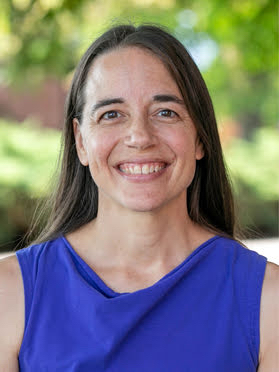On the counter is the new toy that Donald accidentally delivered with the Slim Jims and bobble-head dogs. The words Your Friend Samantha are printed in red on the yellow cardboard. Behind the cellophane window stands a doll with plastic skin molded into a round face and chubby arms and legs. Her eyes are large, flat, and pale blue, her lashes painted on in a fan that almost reaches her eyebrows, her pink mouth parted on tiny, separate teeth. Brown curls cascade down on either side of a rosette of bangs, but Tariq can’t stop looking at her left arm. It is posed beside her head in what is meant to be a wave, but the curled plastic fingers, each with a carefully etched nail, look like claws grasping at the air.
On closer inspection, he sees that her wrists and ankles are pinioned to the box with twist ties. She might be a restrained patient, lying on the counter-top, clutching for the sky. Tariq stands the box up on end. He likes her better this way, poised to rip through the plastic. When Donald returns, Tariq orders a dozen of the dolls, enough to line the top of one shelf. There they stand for weeks, a battalion of girls counting to themselves with their claws upraised.
Once, Tariq almost married. It happened like this: his father performed an emergency bypass surgery on a minor government official, saving his life. “How can we ever thank you?” the family asked.
Looking at their dark-eyed daughter, Tariq's father said, “My youngest son is thirty-four, never married.”
“A surgeon?” they asked.
Tariq can imagine how his father explained, arranged it all: None of his sons were surgeons, alas, but the two oldest studied business, became successful hotel owners in America. This youngest, sorry to say, studied poetry—a phase, you understand? His brothers invite him to America, but will he ever go? No. No one can convince him. He’ll stay in Lahore forever. But he's gentle, quiet. A true believer. The pretty daughter can live in our house with Tariq, close to home. We will find him something useful to do. She will run our house, every girl's dream—no mother-in-law, alas. But that is our private sorrow. Of course she can still study Biochemistry at Kinnaird. Tariq won’t mind. Tariq doesn’t mind…anything.
She was a good girl. She agreed to marry him. It was more than Tariq, shy with women, had hoped for.
Weeks pass, but no one buys the blue-eyed dolls. When Donald stops by, he notices the full shelf. “Haven't seen a single one of those sold anywhere. Overpriced, I guess. Folks sending them back to the warehouse.”
“I'll take them all,” says Tariq. “Give me what you have.” He empties out some expired cans and stocks an entire aisle with Your Friend Samantha. Nobody buys her. She becomes a landmark. Dust tends to collect in the corners of the cellophane, so he dusts twice daily.
Aisha had been afraid of him. He was fifteen years older; his heavy eyebrows made babies cry. Tariq was afraid, too. He saw how she shelved her textbooks on his visits, spoke in soft tones, eyes cast down, sneaked longing glances at the books when she thought he wasn’t looking. He thought he loved her. He told her he was going to America, to his brothers, after all, and it might be best to break it off. To her father, he apologized--she couldn't be expected to come so far from her family, all the way to America. That day, she looked at him with grateful eyes, a dark, lovely flash, quickly hidden beneath her lashes. That was all.
Now—what do you know?—she's in Berkeley, California for graduate school, half a continent away, unmarried.
He wonders if she would have married him, had he stayed. He wishes sometimes that he had, but then his imagination falters. “I am here,” he tells himself. “That is different than where I might be. Of course.”
In his dreams, she rips through the plastic, parachutes down with a red jumper like Samantha's, marches between the rows of goods, and presses her palms against the glass door, her dark eyes intent on the world beyond the gas pumps.
He opens the door and lets her out.
